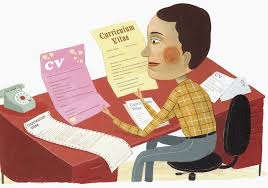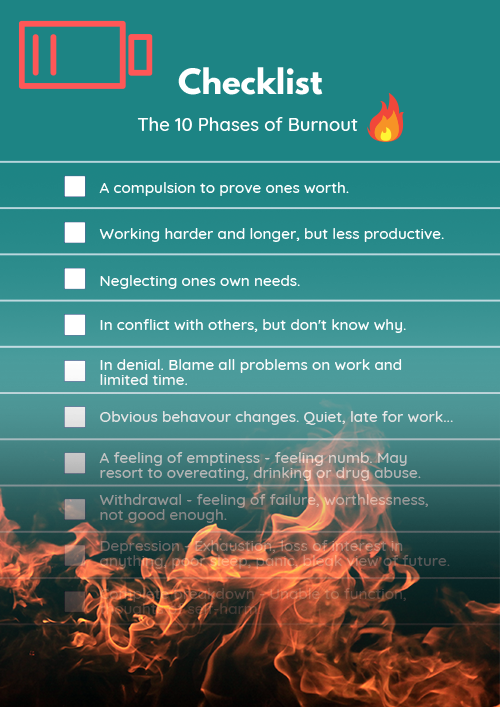Building your CV: section by section
Personal Details
It is vital that the reader can spot, at a glance, not only your name but also how to get in contact with you.
Your CV should be headed with your name – boldly and clearly – before any other details.
You should follow your name with your key contact details, such as your address, phone numbers and email address. Place each under separate lines. (My one piece of advice here, is try to keep your email address professional. There is nothing worse than having a job application from someone who has a jokey email address.)

Getting too personal
There is no need to include your marital status, nationality, number and ages of children, height or weight on a CV. A recruiter does not need to know this information. Furthermore, it could expose you to identity fraud. Up to 50% of CVs contain a sufficient amount of personal data to enable a fraudster to successfully apply for a credit card.
Professional profile
If you’re going to write a professional profile it should only be a few lines in length and must spark the reader’s interest. It can be used to summarise your skills and that you will expound in the main body of your CV.
An example of a professional profile reads as follows:
A positive, proactive and results-driven sales manager with a proven track record of profitable business growth through the creation of successful sales and marketing strategies. Experienced in working with leading brands in the competitive food and drink sector, focussing on exceeding customer service expectations, ensuring optimism brand impact. Possesses excellent interpersonal, communication and negotiation skills and the ability to develop and maintain mutually beneficial relationships with key decision makers.
What NOT to put in your professional profile
Don’t put the following phrases:
- Well keen and up for everything
- Always on the go
- So enthusiastic for selling: it’s in me to SELL, SELL, SELL!
- Able to persuade Eskimos to buy ice!
- I’m very funny, a great laugh and i’ve been told I have a unique outlook on life
- I will give a job my all as long as it doesn’t interfere with my busy social life. My social life is very important to me
- I don’t tend to procrastinate, except when the task is unpleasant or when I have to make a decision.
Objective
If you have space it is worth writing a sentence or two about your objective. This should be written in the same style as the rest of your CV.
An example of what to write is as follows:
Keen to achieve further professional development. Now looking to build on an extensive range of technical skills within a suitably challenging management role.
And here’s not what to say in your objective:
Although I trained as a solicitor and for the past ten years have developed a career in the legal sector, I am bored by it and hence wondered if you might have any other opportunities that may be of interest to me.
Education
I discussed this in detail in Part 3 on 27 December 2018. However, for ease of reference list your education in reverse order, starting with your most recent achievements first. Make sure you include the names of all the institutions you attended.
When it comes to grades it is only really important to include the highest of your grades, unless a recruiter specifically asks for them to be included. One exception is the legal profession, which is very competitive, so for a Legal CV it is usually a requirement to state all grades from all institutions.
Include a separate heading for any further education or training obtained. For example Prince 11 Management Training Course and First Aid Training should come under this heading.
Career History
As explained in my last post you should always work in reverse chronological order, focussing more on your recent information.
It is important to specify the following information:
- The dates you worked for each organisation – if there are any unexplained gaps in your employment this may raise concerns with recruiters. One trick is to write employment dates in years, not months, within your career history.
- Your job title,or function – Be truthful, because your prospective employer is likely to contact your previous employer for a reference.
- Details of the organisation you worked for – Was it a PLC, or Ltd company?
- A compelling description of what your role entailed – give examples of a day to life in your job role – do not copy and paste the job description.
Key Skills
Key skills are not seen as so important in CVs these days. However, if you are providing a functional CV it would be wise to provide a key skills section.
They should be written in bullet point form, and examples would include:
- Communication skills
- Negotiation skills]interpersonal skills
- administration skills
- organiational skills
- presentation skill
- research skills
- numerical skills
Do not put the following as key skills:
- Pretty
- Lovely smile
- Nice puppies
- Cute bum
Achievements
It is not compulsory to include an achievements section in your CV. However, there are many situations where it would apply.
If you can fit it into the two pages it can make an instant and dramatic difference to the power of your CV. It can help to distinguish yourself from other candidates and make you stand out.
This is the time to show off what you have achieved, and to imply that you will be capable of achieving similar results in the future.
Examples of how to write achievements:
- Won employee of the year award in 2016, resulting in promotion the following year
- Personally responsible for delivering the highest sales contribution for the group of 25.8%, with the closest rival delivering just 20.2%.
- Delivered a substantial increase in weekly sales levels, from £45,000 to £85,000 – nearly doubling sales.
Other Details
Driving licence
If you have a driving licence, this should always be included on your CV, even if it isn’t ‘clean’.
Health
It isn’t necessary to include details about your health on your CV. If you have a recognised disability then the Equality Act 2010 should protect a prospective employer from discriminating against you on health grounds.
Professional memberships/registration
You should highlight professional affiliations, because they’re a valuable selling point, including any professional registration.
Relocation
If you are willing to relocate, it can be helpful to put this information on your CV.
Holiday plans
Even if you have any holidays booked, do not put this information on your CV.
Interests and activities
You can keep this just brief and simply mention that your interests include swimming, yoga, walking and reading.
Referees
This information shouldn’t be put in your CV. It’s a waste of valuable space. A simple statement at the bottom of your CV saying ‘References are available on request’ is sufficient.
Convictions
This is always going to be difficult to handle.
The simple answer is don’t disclose this information on your CV, because you have no obligation to do so at this stage. You only have to disclose this information if you are asked to, or in a very small number of jobs where you have to.
The Rehabilitation of Offenders Act 1974 allows for certain criminal convictions to be deemed ‘spent’ after what is termed as a ‘rehabilitation period’.
Next week i’ll be covering the 15 most common CV writing mistakes


